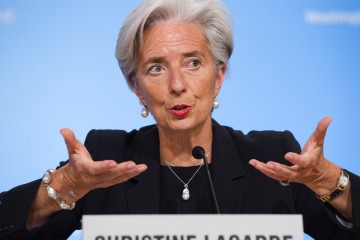
“It’s the economy stupid”: Declining labour mobility explains Trump’s victory
Donald Trump’s success in the US elections came as a surprise to both pollsters and political pundits. And since November, both have peddled numerous theories to explain their mistakes. Yet, one aspect of his electoral victory remains underappreciated: labour mobility. Labour mobility across regions is much higher in the United States compared to many other countries in the world, including the European Union members, allocating individuals into the jobs where they are the most productive. As such, mobility is an important factor for upward social mobility for middle class Americans, where they can increase their earnings and their life standards by moving to higher-earning jobs in dynamic regions. [1] But economic mobility has been declining over the last two decades.[2] …

Do IMF Programmes increase Social Spending?
In a recent article, Benedict Clements, Sanjeev Gupta, and Masahiro Nozaki find evidence that International Monetary Fund (IMF) programmes increase social spending in the least developed countries (LDCs).[1] The finding is unexpected, since earlier studies demonstrated an unequivocal relationship in the opposite direction (i.e. that IMF programmes reduce social spending). This note discusses why there might be contradictory conclusions in the literature. Particularly, I argue that social spending increases in a specific IMF programme type, namely Poverty Reduction and Growth Facility (PRGF) programmes. Those programmes are precisely designed for LDCs and envisage an increase in targeted spending in health and education. In other types of programmes such as Stand-by Arrangements or Extended Fund Facility on the other hand we do …










